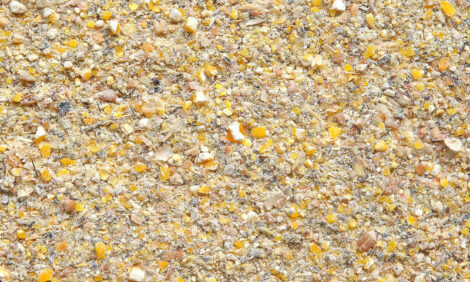



Foster Farms Invests $75 Million in Salmonella Programme
US – US integrated poultry processor, Fosters Farms, at the centre of a major Salmonella outbreak this year, has invested $75 million to develop a programme to reduce Salmonella at each stage of the production process.The Centers for Disease Control and Prevention (CDC) confirmed that the Salmonella outbreak associated with raw chicken had ended at the end of July, following the implementation of the programme.
Foster Farms said that the CDC had confirmed that the company had reduced Salmonella to less than five per cent from an industry average of 25 per cent for raw poultry parts.
The CDC said: “Foster Farms has implemented and continues to utilize multiple interventions to reduce Salmonella throughout its entire poultry production process. This strategy includes interventions at the breeder level, at hatcheries, at grow-out farms, and at the processing plant where the final product is packaged. Supported by data from continuous testing by Foster Farms, these interventions have reduced Salmonella prevalence to less than five percent in the Foster Farms establishments linked to this outbreak. FSIS has determined that process control measures undertaken by the firm to consistently minimize Salmonella contamination of raw chicken have been successful.”
The key elements of Foster Farms’ bird health programme are:
- The company does not use any antibiotics for the purpose of growth promotion.
- The company does not use antibiotics that are considered critical to human medicine such as cephalosporins or fluoroquinolones.
- When antibiotics are administered to a flock, the duration is limited and all recommended withdrawal times are followed prior to processing.
- Any veterinary treatment plan of the birds is developed in consultation with and overseen by a company veterinarian.
- During the recent Salmonella Heidelberg issue, the Centers for Disease Control (CDC) concluded that the frontline (first choice) and the most common antibiotics used to treat Salmonellosis were fully effective.
Foster Farms’ policy for responsible and humane veterinary treatment of the birds it raises was put in place before the Food and Drug Administration updated its own guidelines.
The company said that it is continuing to consult with leading experts in the areas of food safety, human health, poultry health and animal welfare.
And now it is actively sharing its findings with other raw chicken and turkey producers in the food industry to improve Salmonella controls industry wide.
“Foster Farms is committed to the health and welfare of our flocks, because healthy chickens ensure safe, high quality poultry products,” the company said.
“As with any food animal raised for consumption, the risk of disease cannot be fully eliminated.
“We believe there is a role for the judicious use of antibiotics in the treatment of flock illness should that be necessary, which helps ensure human health, animal health and animal welfare.
“Foster Farms prioritises antibiotics that are approved by the FDA for disease treatment and prevention in poultry.
“Foster Farms currently produces organic and antibiotic-free product lines and will continue to explore expanding production of these lines while ensuring the accessibility and affordability of chicken products for the vast majority of West Coast consumers.”
Foster Farms added that sanitary operations are a key part of our food safety programme.
In the last three months, USDA inspectors have performed more than 4,800 tests in the areas of sanitation, HACCP and overall wholesomeness and have found Foster Farms was 99 per cent compliant.
The company said that any corrections required were immediately addressed during production to ensure full compliance.
“The company is committed to achieving 100 per cent compliance and believes this record is among the best in the industry.
“Operations at our California plants demonstrate best practices that have been scrutinized and affirmed by national experts and the USDA.
“Products from all of our company facilities have been produced under the most stringent processes and are inspected and approved as wholesome, daily, by USDA inspectors.”








